Coronavirus: Mental health services get $48m boost as Australia moves to tackle jobless rate curve
More Australians will be able to access mental health services after Scott Morrison announced a $48 million boost, and while COVID-19 transmission rates are falling, the nation now need to focus on flattening a new curve as the jobless rate climbs.
Coronavirus
Don't miss out on the headlines from Coronavirus. Followed categories will be added to My News.
Vaccine could be ready in a year
EU drugs agency downplays WHO fears
PM talks tough on China threats
Aussies ‘will have to wait years’ for overseas travel
Prime Minister Scott Morrison says state and federal governments need to flatten a new curve, with Australians “hurting” as the jobless rate climbs.
Mr Morrison said the nation was making good progress in flattening the COVID-19 curve with transmission rates having dropped significantly, but added he was determined to get people back into jobs.
“Australians are hurting right here and right now, as we were reminded so terribly yesterday, with almost 600,000 people having lost jobs,” Mr Morrison said following a National Cabinet meeting.
“It was an opportunity, an important one, to be briefed fully on yesterday’s unemployment figures and how it was impacting across the country. It was also an opportunity for premiers and chief ministers and I to reaffirm our commitment to see how we can work together and how we will work together, to get those Australians back into jobs.”
“That is the curve we are now working on together.”
State and federal leaders also agreed to a national mental health and wellbeing pandemic response plan, backed by extra money,
The $48.1 million boost agreed to by the national cabinet today will support the implementation of the National Mental Health and Wellbeing Pandemic Response Plan designed by Christine Morgan, the Prime Minister’s suicide prevention adviser.
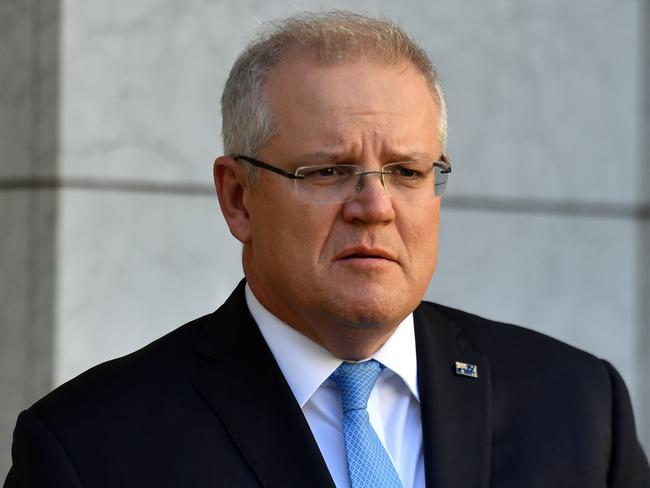
Health Minister Greg Hunt said it the additional investment would cover three main areas.
“First is about support for research and data into what’s happening in real time,” Mr Hunt said.
“Secondly, there’s $29.5 million for investment in outreach to vulnerable communities. In particular, the elderly, people from non-English-speaking backgrounds, Indigenous Australians, and those who have pre-existing mental health conditions.
“And then finally there’s $11.3 million which is going to communication and outreach. $10.4 million of that will be part of a national campaign to say to Australians, ‘It’s OK not to be OK’.”
Extra telehealth capability rolled out in recent times had already seen Australians returning to their mental health providers in pre-pandemic numbers, the Prime Minister said.
Ms Morgan explained Australians were experiencing the pandemic differently because of their circumstances and experiences.
“There are particular vulnerable groups and we need to meet the needs of those particular vulnerable groups,” she said.
“This plan reflects that.”
She said “risky behaviour” including alcohol abuse, gambling and domestic violence were key area of concerns.
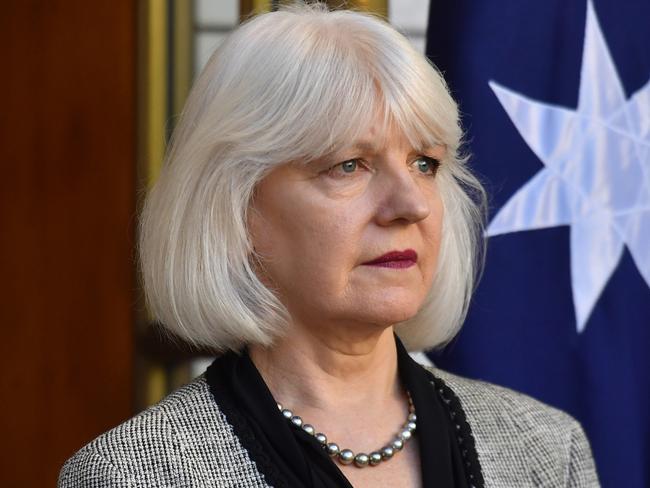
While Ms Morgan said it was good to see suicide rates across the country had not increased during the pandemic, it was vital support was increasing and everyone remained vigilant.
“It hasn’t gotten worse,” she said.
“It doesn’t mean it couldn’t get worse.”
Mr Morrison also said it was important banks made loans available quickly to businesses as they look at reopening and rebuilding.
About $220 billion in loan deferrals have already been approved since the start of the pandemic.
Around two thirds of that was in home loan deferrals and the rest was shared across small and medium sized enterprises.
Domestic tourism presented a large opportunity for the domestic economy as “borders fall” across the country.
“That’s up for grabs for Australian domestic tourism operators,” Mr Morrison said.
“That will be targeted.”
Tourism minister Simon Birmingham has been engaged to work on strategy with Tourism Australia to encourage domestic tourism.
AMERICA ‘RUNNING OUT’ OF TIME TO CURB COVID-19
America is “running out” of time to tackle coronavirus and doesn’t have a plan to properly deliver a vaccine, according to a top infectious disease expert turned whistleblower.
Ousted health official Dr Rick Bright, who says he was sidelined from his government role after criticising the Trump administration’s pandemic response, made the warnings in several hours of damning testimony to a House committee in Washington.
He said the US risks failing to deliver any vaccine through repeating its early missteps in distributing essential medical supplies, such as the treatment drug Remdesivir and personal protective equipment.
A lack of co-ordination and planning meant America faced the “darkest winter in modern history”.
“Time is running out because the virus is still spreading everywhere,” Dr Bright said under questioning as the world’s death tally passed 300,000 and the US infection toll passed 1.4 million.
The developments came as US Secretary of State Mike Pompeo issued a statement formally calling on the Chinese government to “cease” hacking into COVID vaccine research.
“The United States condemns attempts by cyber actors and non-traditional collectors affiliated with the People’s Republic of China (PRC) to steal US intellectual property and data related to COVID-19 research,” Mr Pompeo said.
“The United States calls on the People’s Republic of China to cease this malicious activity.”
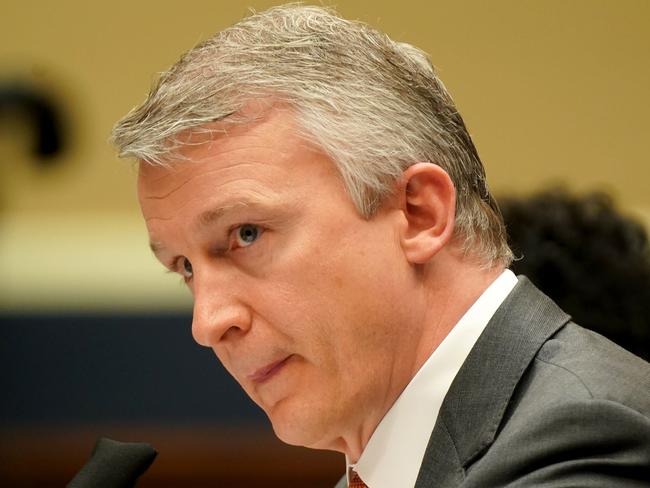
MORE NEWS
$25 isolation product that’s selling out
Bizarre outfit people are wearing in lockdown
“People are getting restless to leave their homes.
“We have to make critical decisions on how to balance the economy and science.”
With record jobless claims and a freefalling economy, more than 40 states have started easing restrictions despite America’s death toll continuing to climb. The country accounts for more than a quarter of the world’s 4.37 million infections and 85,000 of the official global death count of 300,000.
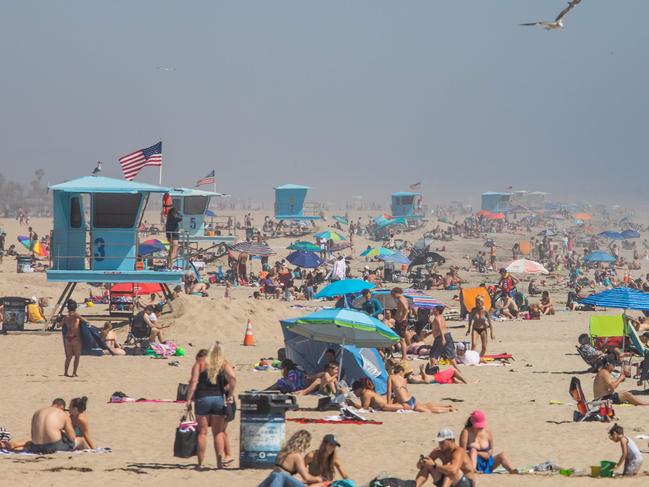
Dr Bright headed BARDA, the Biomedical Advanced Research and Development Authority within the Department of Health and Human Services (HHS), until April, when he was moved to a “more limited and less impactful position” at the National Institutes of Health.
President Donald Trump has repeatedly dismissed Dr Bright’s criticisms, describing him in a tweet shortly before the House hearing as “a disgruntled employee, not liked or respected” whom he had “never met…. or even heard of”.
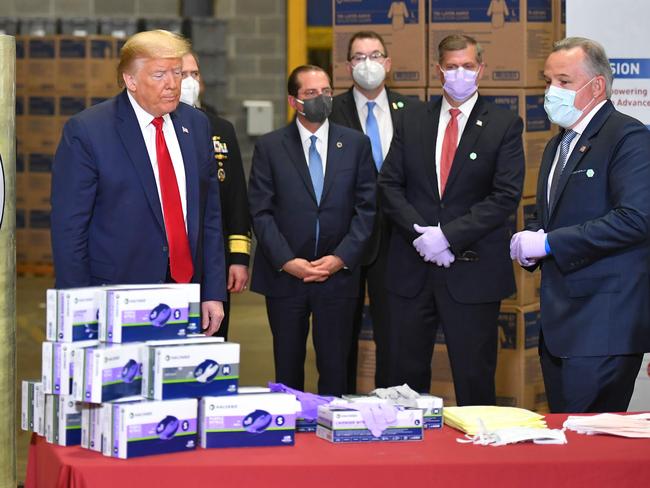
Dr Bright said he was met with “indifference” and his HHS bosses were “dismissive” when he raised concerns about preparedness, as well as the president touting the effectiveness of an unproven drug treatment.
“I was told that my urgings were causing a commotion, and I was removed from those meetings,” Dr Bright said.
He recalled an exchange he shared with a Texas manufacturer of masks early this year to illustrate the lack of preparedness.
“Our mask supplier, N95 respirator supplier, was completely decimated and he said: ‘we’re in deep sh-t, the world is, and we need to act’,”’ Dr Bright said.
“I pushed that forward to the highest levels I could in HHS and got no response.
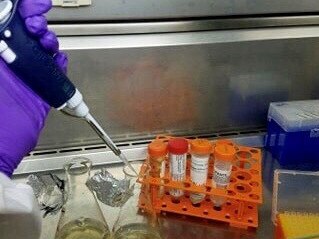
“From that moment I knew that we were going to have a crisis for our healthcare workers because we were not taking action. We were already behind the ball, that was our last opportunity to turn on that production to save the lives of our healthcare workers and we didn’t act.”
He said there wasn’t sufficient planning for the rollout of a vaccine, should one emerge soon, and when asked if that should concern Americans, responded: “Absolutely”.
“If you can imagine the scenario this fall or winter, maybe even early next spring, when a vaccine becomes available, there’s no one company that can produce enough for our country or for the world,” he said.
“There’s going to be a limit to supplies. We need to have a strategy and a plan in place now to make sure that we can not only fill that vaccine, make it, distribute it, administer it.
“We don’t have that yet and it is a significant concern.”
RARE SYNDROME CASES SPIKE
Doctors in France and northern Italy have reported spikes in cases of a rare inflammatory syndrome in young children that appears similar to one reported in the US, Britain and Spain, according to a report in The Lancet.
The condition, “paediatric Multi-System Inflammatory Syndrome Potentially Associated with COVID-19”, shares symptoms with toxic shock and Kawasaki disease including fever, rashes, swollen glands and, in severe cases, heart inflammation.
Reports of cases have raised concerns that COVID-19, the disease caused by the coronavirus, could pose a greater risk to children than had been understood. COVID-19 so far has taken its greatest toll on the elderly and those with chronic health conditions.
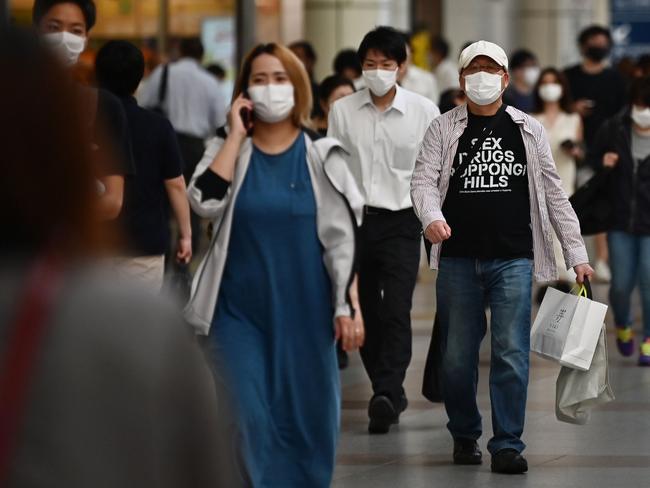
New York is investigating up to 85 cases of children with the syndrome. So far three of those children, who also tested positive for COVID-19, have died, and two more deaths are under review, Governor Andrew Cuomo said. In Bergamo, Italy, between February 18 and April 20, the Hospital Papa Giovanni XXIII admitted 10 children with the syndrome including eight who tested positive for coronavirus antibodies.
Over the last five years, doctors there had seen a total of only 19 children with Kawasaki disease, according to the report published by The Lancet this week.
Compared to children with Kawasaki disease in the past, those they saw during the pandemic were older and more severely ill, the report said, with 60 per cent suffering heart complications and half having signs of toxic shock syndrome.
French researchers reported Kawasaki disease-like symptoms in 17 children admitted to a Paris hospital between April 27 and May 7, while in an average two-week period they would have expected to see only one such case.
Scientists are still trying to determine whether the syndrome is linked with the new coronavirus because not all children with it have tested positive for the virus.
Some researchers have suggested the coronavirus family might trigger Kawasaki disease.
“The symptoms in children are different from adults with COVID-19 in whom the illness is more of a respiratory condition,” said Dr. George Ofori-Amanfo, division chief of paediatric Critical Care at Mount Sinai Kravis Children’s Hospital, New York.
Children with the rare inflammatory syndrome often have severe abdominal pain and vomiting that progresses to shock.
CHINA MAY HAVE 640,000 CASES, NOT 80,000
A leaked database from a Chinese military-run university suggests the country may have at least 640,000 COVID-19 cases — a figure substantially higher than Beijing’s dubious claim that it has seen just 80,000 coronavirus infections.
The virus tracker, compiled by China’s National University of Defense Technology and leaked to Foreign Policy magazine, appears to confirm fears that the nation’s Communist government is hiding the true nature of the outbreak that originated in Wuhan late last year.
According to the report, the virus tracker consists of more than 640,000 rows of cases in 230 cities ranging from early February to late April and confirms the location of each infection.
The data includes locations for hospitals, train stations, hotels, restaurants and schools and was compiled by a professor at the university that is run by China’s Central Military Commission, the report said.
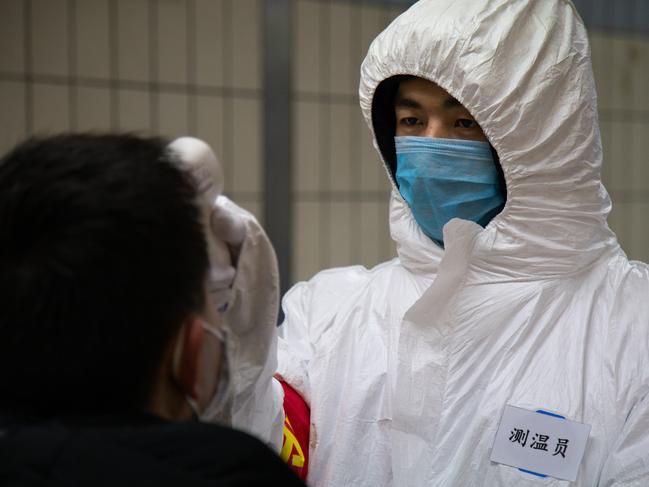
China’s ruling Communist Party, which has blocked US scientists from coming to the country to study the virus, claims it has seen only 4,633 deaths and 82,929 cases as of Thursday.
These figures are considered highly untrustworthy by the international community, with the US now at 85,601 deaths and 1.4 million confirmed cases.
Suspicions that China was hiding the true scale of the outbreak were only furthered when state media last week suddenly increased the coronavirus death toll in the city of Wuhan by 50 per cent.
In the earliest days of the COVID outbreak before the scale of the pandemic was known, a video surfaced of a person wearing a medical mask and claiming to be a healthcare worker who asserted China already had 90,000 cases. At the time, it was dismissed as a fake - but it turned out to be closer to the mark than anyone thought.
CORONAVIRUS VACCINE COULD BE READY ‘IN A YEAR’
A vaccine for the coronavirus could be ready in a year’s time under an “optimistic” scenario, based on data from trials that are under way, the European Medicines Agency said today.
“We can see the possibility if everything goes as planned that some of them (vaccines) could be ready for approval in a year from now,” Marco Cavaleri, the EMA’s head of biological health threats and vaccines strategy, told a video news conference.
“These are just forecasts based on what we are seeing. But again I have to stress that this is a best-case scenario, we know not all vaccines that come into development may not make it to authorisation and disappear,” he added.
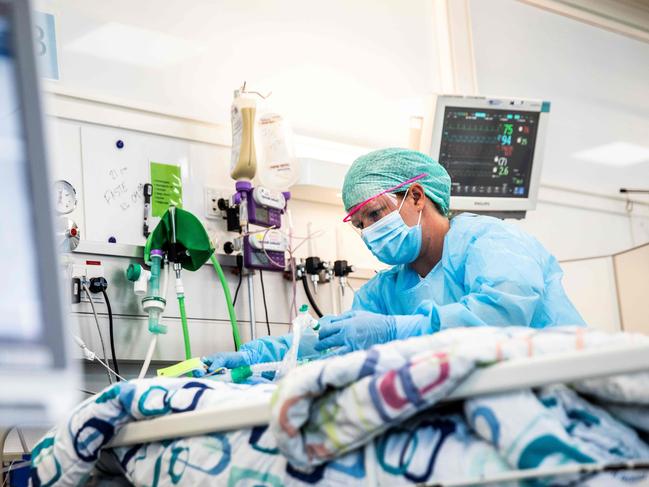
“We know also that there may be delays.”
The agency was however “a bit sceptical” about reports that a vaccine could be ready as soon as September.
The Amsterdam-based EU agency meanwhile played down fears expressed by the World Health Organisation that the virus “may never go away”.
“I think it’s a bit early to say but we have good reason to be sufficiently optimistic that some vaccines will make it,” Cavaleri said.
“I would be surprised that if at the end of the day we don’t have any vaccine for COVID-19.”
AUSTRALIA WILL CONTINUE TO PUSH FOR INQUIRY: DUTTON
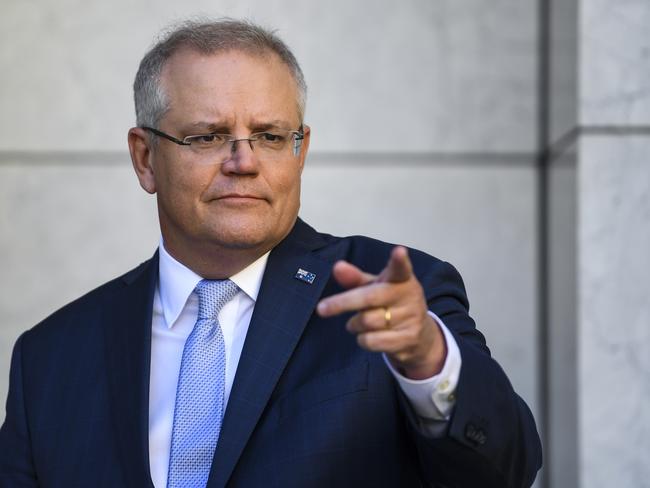
Peter Dutton has declared Australia will continue pushing for the independent inquiry, despite straining relations with China.
Beijing has suspended beef imports from four abattoirs and plans to slap huge tariffs on Australian barley, after warning the inquiry could destroy two-way trade ties.
The Home Affairs Minister has consistently argued families of coronavirus victims have legitimate questions that need to be answered in a transparent way.
“Australia’s done nothing more than stand up for our values and we will consistently do that,” Mr Dutton said.
Labor supports the government’s calls for a coronavirus inquiry but has criticised its messaging on China-Australia relations.
Opposition foreign affairs spokeswoman Penny Wong says the prime minister should lead the debate and be more clear and consistent.
“I think it is regrettable that much of this debate is being framed and led by conservative backbenchers, trying to outdo each other as to who can be more strident on China,” she told ABC radio.
“I don’t think that serves the national interest.”
Senator Wong believes the inflammatory comments have been squarely aimed at a domestic audience.
“We need to think less about domestic political interest from the prime minister down. We need to be focusing on the national interest.”
AUSSIES FACE OVERSEAS TRAVEL DELAY FOR YEARS
Australians will have to wait years for overseas travel to return to normal, with an industry authority revealing that won’t be until 2023.
International Air Transport Association chief executive Alexandre de Juniac revealed overseas travel would resume “later” than previously thought.
“We have published today a new forecast about the potential recovery of the air traffic, and what we see is that things should come back to normal in 2023, which is later than our previous forecast,” Mr de Juniac told ABC News Breakfast on Thursday.
“That shows, you know, the importance and the severity of this crisis on air transport …. We should join progressively the historical trends by the beginning of 2023.
“What we have planned is to restart the industry, first by reopening domestic markets, then regional continental markets, such as Asia-Pacific, or Europe, or North America.
“At the end of 2020, the traffic should be between 50 to 55 per cent of the same level that was in place in 2019.
“So, we would lose something like half the traffic for … 2020.”
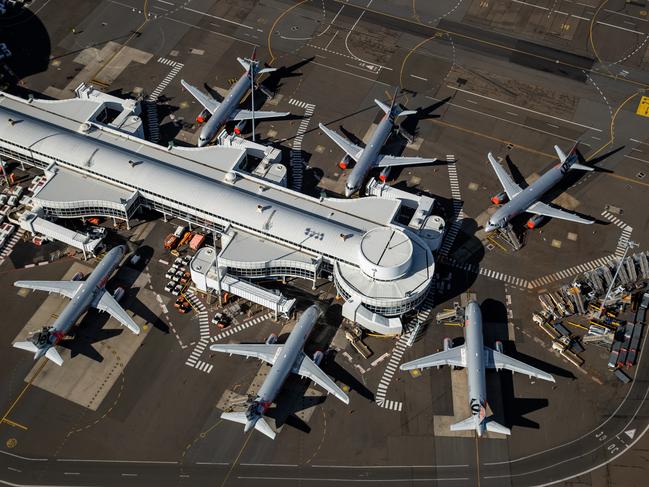
MORE NEWS
Child hand sanitiser poisonings on the rise
‘Tough day for Australia’: 600,000 jobs lost
MyBudget outage: ‘Is our money still going to be there?’
Aussie #vanlifers stuck in Mexico
His comments came a day after the country’s top doctor said Australia has “no clear road map” to reopening international travel, with closed borders “integral” to containing COVID-19.
“I can’t see, I have no vision at the moment on the current international scene where international border measures of some very strong vigour won’t be necessary,” chief medical officer Professor Brendan Murphy said on Wednesday.
“There is no clear road map out of this. Local border restrictions are less important than international travellers, particularly from Europe and the UK, where there are widespread cases.”
Originally published as Coronavirus: Mental health services get $48m boost as Australia moves to tackle jobless rate curve


